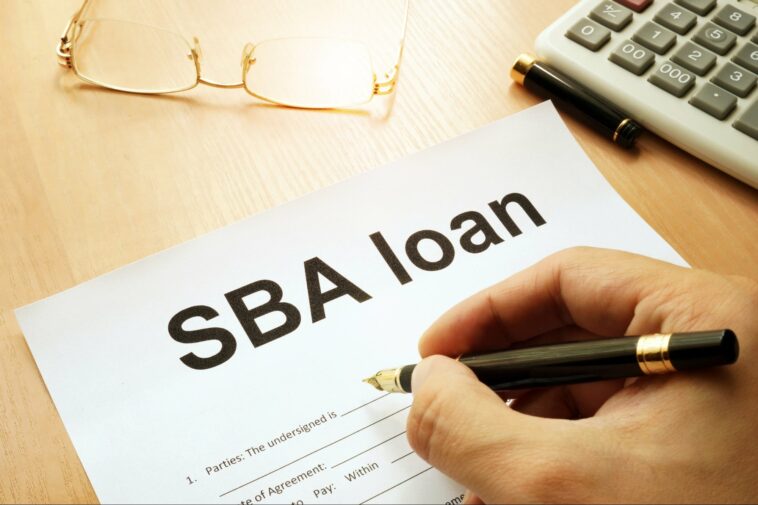The SBA loan is a type of government-backed financing that can provide the financial support you need to start up and grow your business. However, the process for applying for this loan can be a bit complex. For starters, you’ll want to take a look at the rules governing the process and the eligibility requirements before you make your application. You’ll also want to know a few important things about your own personal credit and business history before you apply.
Get financing for your business
There are many options for small business owners looking to get financing. One of these is an SBA loan. These loans are a type of debt that is partially guaranteed by the Small Business Administration.
Compared to conventional bank loans, SBA loans have lower interest rates and flexible repayment options. They are also easier to qualify for. However, a good credit score is a must.
Most SBA loans require a personal guarantee from the owner or business partner. Unless you are purchasing the entire company, this puts your personal assets on the line.
In general, you must be operating for at least two years and have sound financials before you can apply for an SBA loan. Applicants can also visit a local SBA district office for assistance.
The benefits of an SBA loan are numerous. You may be able to purchase equipment, pay off current debt, expand, and more. This loan is also a good option for companies that are facing a financial crisis.
SBA loans can take several months to close. Typically, a standard waiting period is between 60 and 90 days. During this time, your lender will need to submit your information to the SBA. Once your loan is approved, you will repay the loan over a period of time with interest.
As with any loan, you will want to research the specifics of your SBA loan. The SBA has many programs that offer different kinds of loans. Some of them are variable rate, while others are fixed. Depending on your situation, you will need to decide what’s best for you.
Another way to get an SBA loan is to work with a local bank. Many banks have an assigned representative to help you through the process.
Get counseling
If you are looking for a loan for your small business, you might want to consider getting counseling from the Small Business Administration (SBA). These loans are a great way for businesses to get the funding they need.
The SBA offers a wide variety of services, including training, free counseling, and financial opportunities. Many small businesses find success working with the organization.
While the SBA’s loan program may sound good, it’s not without its drawbacks. Before you apply for one of these loans, make sure you are familiar with all of the details.
First, you must choose the best lender for your needs. Some lenders require a business plan or credit history, and you might not be approved if you don’t have a clean record. In addition, some SBA-backed loans have limitations on how they can be used.
Getting the best possible rates might require that you work with a lender who is a member of the Preferred Lending Partner program. Not all lenders are members of this program, and that can add to the overall time it takes to get a loan from the SBA.
You can also use an SBA-approved bank as a source of funds. However, if your credit history or business model makes you ineligible for an SBA-backed loan, a bank term loan could be your best bet.
One of the main benefits of a counseling loan is that you will be able to find a lender who offers the financing you need. A bank will have a better understanding of your business’s needs, and can make your loan process easier.
Lastly, you should ask about all of the fees associated with the loan. Most SBA-backed loans include interest fees, but you should be aware of what is included. Also, you should be aware that your payment schedule might be different from your lender’s.
Get exporting and contracting expertise
If you’re a small business owner looking to expand internationally, you can get exporting and contracting expertise with an SBA loan. SBA is a federal agency that provides counseling, low-cost training, and financing for companies that want to expand their businesses internationally. It also holds senior officials accountable to help small businesses meet their goals.
To achieve its goal of assisting small businesses with exporting, the Small Business Administration (SBA) has undertaken a number of initiatives. In addition to enhancing the agency’s coordination with other federal agencies, SBA is also working to increase awareness among lenders of the various export financing options available.
The Office of International Trade (OIT) is the first point of contact for small businesses seeking information about the regulations and programs they need to understand in order to successfully participate in international trade. The agency also offers resources on logistics and shipping, as well as market data.
The SBA’s Export Express program allows small businesses to access up to $500,000 in funding to help them grow their businesses overseas. To qualify, the business must be operating for at least 12 months. Depending on the type of product or service, borrowers can use the funds for standby letters of credit, the translation of product literature for use in foreign markets, or to help cover costs of participating in foreign trade shows.
The Export-Import Bank of the United States also works with SBA to provide a variety of credit guarantee programs. Loans from the bank can be used to finance a wide range of export transactions, including the purchase of equipment, supplies, and raw materials for the production of a product.
Improve your personal credit and business history
The Small Business Administration (SBA) has a loan program that offers below-market interest rates. It also offers attractive features such as lengthy maturities. However, it is important to understand how to improve your personal credit and business history before applying for an SBA loan.
Your business’s credit rating can be influenced by several factors. One of these is how well you make your payments. When you make timely payments, lenders will recognize you as a responsible borrower. This can increase your chances of getting better rates in the future.
Another factor that can affect your business’s credit rating is how frequently you change ownership. If your business has frequent changes in owners, it can cause lenders to be concerned about the risk of lending. Taking out a business loan can help you to avoid this problem.
Fortunately, the SBA has combined with alternative lenders to offer more opportunities for entrepreneurs to secure funding. These lenders are generally more flexible than traditional banks. In fact, they may require a smaller personal credit score and lower rates for a small business.
Although a business credit score isn’t as significant as your personal one, it’s still worth checking. Some lenders will take into account both when evaluating a loan application.
The Small Business Financial Exchange (SBE) collects data that is used to assess your business credit history. Other small business credit reporting services include Experian, Dun & Bradstreet, and Equifax.
Several of these credit reporting services offer free or low-cost credit monitoring services. You should regularly check your business credit report to identify mistakes and keep your business’s credit status in good standing.
Forgive a defaulted loan
If you’re a small business owner with an SBA loan, it’s important to know what to do in case you run into trouble repaying the loan. The SBA Loan Forgiveness Program can help you wipe away some of your SBA debt.
First, you need to contact your lender. Your lender will be able to tell you more about the process of repayment. You can also contact an attorney. A bankruptcy attorney can help you find solutions to your financial problems.
If you haven’t been paying your loan on time, you will be sent a demand letter from the U.S. Treasury Department. This is a legal notice that states that you have 60 days to pay the balance.
If you do not pay your balance within 60 days, the government will begin the collections process. In some cases, the Treasury department will even blacklist your name.
However, you can avoid this by working with your lender. Some lenders will allow you to pay only the interest on the loan until a restructuring plan is completed. Other lenders may try to lower your payments.
If you’re experiencing financial problems, it’s important to keep in touch with your lender. As soon as you realize that you may be having problems with your loan, you should immediately contact your lender.
After you contact your lender, you will have to go through the process of submitting an offer in compromise. An offer in compromise is an offer from the SBA that will help you settle your debt for less than the total amount.
Before you accept an offer in compromise, you must have evidence of your inability to pay the loan. The SBA will consider your situation and decide if you are a good candidate for the program.




